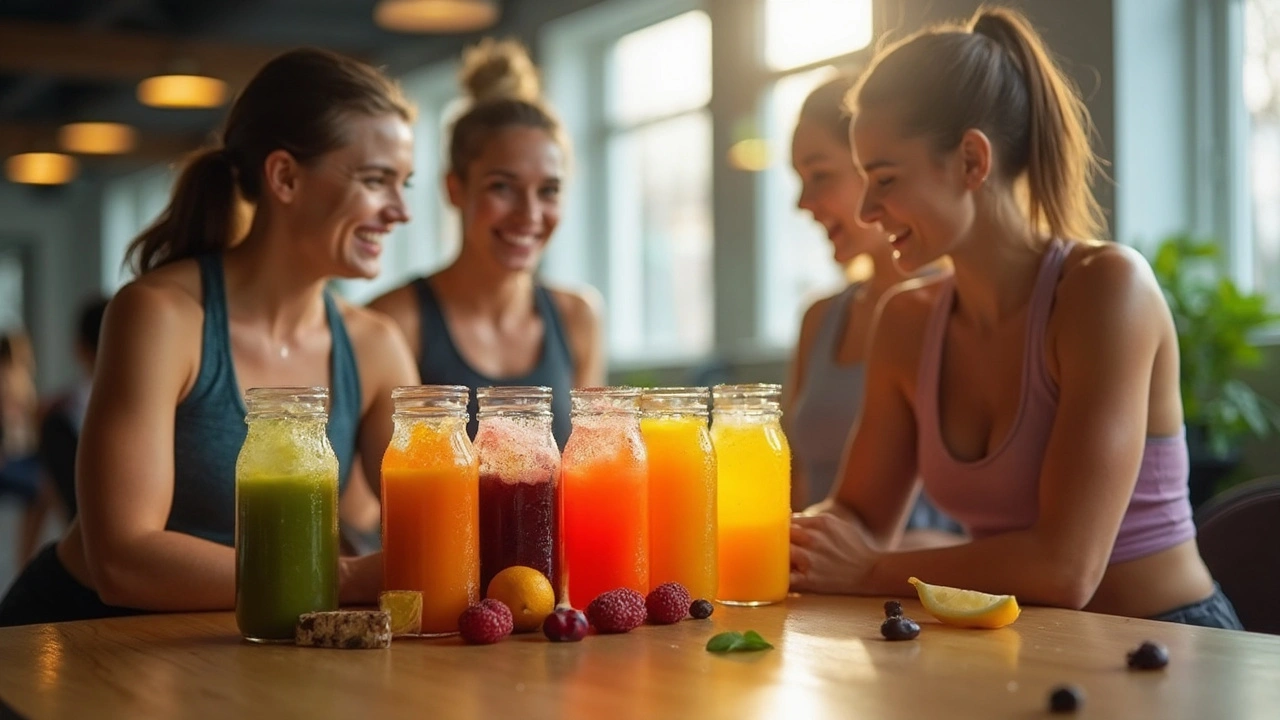Hydration: Practical Tips to Stay Hydrated Every Day
Feeling slow, getting headaches, or your skin looking dull? Often the fix is simple: more fluids. Hydration affects energy, mood, digestion, and exercise recovery. Below are clear, usable tips you can start using today—no gimmicks.
How much water should you drink?
There’s no one-size-fits-all number, but a good starting point is 2 to 3 liters (about 8–12 cups) for most adults. Activity, heat, pregnancy, and illness raise that need. A simple rule: check your urine color—pale straw means you’re doing fine; dark means drink more. If you sweat a lot during workouts, add 500 ml to 1 liter per hour depending on intensity.
Quick signs you're dehydrated
Know these early signs so you can act fast: thirst, dry mouth, tiredness, headaches, dizziness, and darker urine. Kids may get cranky; older adults might confuse thirst with hunger. If someone feels faint, weak, or very confused, seek medical help—severe dehydration needs attention.
Electrolytes matter when you lose a lot of sweat. Sodium and potassium help your body hold water and keep muscles working. For long, hard workouts or hot days, sip an electrolyte drink or include salty snacks and a banana. For everyday hydration, plain water plus a balanced diet usually covers electrolyte needs.
Don’t force big gulps. Small sips throughout the day work better—your body absorbs fluids faster and you avoid bloating. Try drinking 250–500 ml first thing in the morning to rehydrate after sleep. Sip 200–300 ml about 30 minutes before exercise, and keep sipping every 15–20 minutes during activity.
Food helps. Many fruits and vegetables are over 90% water—cucumber, watermelon, oranges, and strawberries are great choices. Soups, smoothies, and health juices also add fluid and nutrients. If you dislike plain water, add slices of lemon, cucumber, or a few berries for flavor without sugar.
Practical habits that stick: carry a refillable bottle, set a phone reminder to sip, drink a glass with every meal, and swap one sugary drink a day for water. When traveling or flying, avoid too much alcohol and caffeine—both increase fluid loss. For kids, use fun bottles and frozen fruit pops made from diluted juice or blended fruit.
Medications and health conditions can change your needs. If you take diuretics or have a medical issue, talk to your clinician about a safe plan. Most people can stay hydrated with simple changes: consistent sipping, water-rich foods, and paying attention to how they feel. Try one new habit this week and notice the difference in your energy and mood.

Why Health Juice Is the Best Post-Workout Drink for Fast Recovery
Discover why health juice is the ideal post-workout drink. Learn about hydration, muscle repair, and recovery benefits with practical tips and real science.
Read More